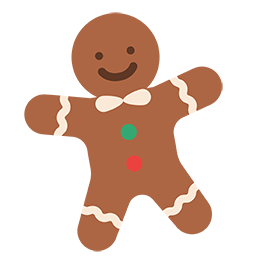
Sperm Donation
Men with no or not viable sperm – inborn or acquired – cannot be helped with by medical treatment. If they want to have a child, they have only two alternatives: adoption and sperm donation. The latter means that sperm of a donor are placed into the uterus of the woman by insemination.
In Austria sperm donation is regulated by the reproduction-medicine-law „Fortpflanzungsmedizingesetz” (FMedG in German)
Especially the paragraphs 3 (2), 4 (2), 7 (3), 8 (1), 2.,4., (5)., 9 (3), 11 –17, 20 (1,2) are important. In the following we will concentrate on some aspects of sperm donation which we think especially important.
How to proceed with donor insemination?
At your first consultation you are invited to give us a detailed description of your problem. We try to answer all your questions and discuss all medical, legal and psychosocial aspects of the treatment with you. Thereafter you have the opportunity to talk to our psychotherapist about all possible future psychosocial problems possibly occuring through the treatment.
If you have decided to undergo this treatment, we record some typical characteristics of the man, like height, weight, eye color, color of hair and skin, blood group and also his education, job, hobbies and preferences. We also make photos of him or you may bring some photos to the institute.
With the help of these characteristics the physician will select a donor from our sperm bank who best resembles the male partner.
In addition, you have to see a notary or a civil court to sign the contract, which is necessary to guarantee your parenthood for the future child.
In order to keep the risk of transferring infections to the patient as low as possible, sperm donors are screening in blood before every insemination for HIV ½, Hepatitis A, B and C, Lues, and other agents, in the same way as every blood bag is tested nowadays before blood transfusion.
New:
For an additional fee, you can request the testing of the donor for over 200 different genes of hereditary diseases, like Cystic Fibrosis (Mucoviscidosis), Alfa- and Beta-Thalassemia, Spinal Muscle Atrophy, Tay Sachs Syndrome, etc., please, find the complete list here. Because even a healthy man can be a carrier of a hereditary disease, which, however, will only be transmitted to his child, if the mother is a carrier of the same disease too (autosomal recessive transmission). Since this issue is rather complex, I am ready to answer your questions directly by Tel: +43 664 922 4886.
During the treatment cycle the day of ovulation will be determined hormonally and the washed donor sperm will be injected painlessly into the uterus via a thin flexible plastic-catheter. The pre-examination will show whether a hormonal support of the ovarian function is useful. Two weeks later, you make a pregnancy test or you come to our institute for a pregnancy test in blood. If it is positive you may see your gynecologist to care for you during your pregnancy and the birth. If you like, we can do the first ultrasound-examination in the 6. – 8. week of pregnancy to verify the heart activity of the embryo(s).
Success rate
The success rate of women under 38 years is 35 % per cycle with fresh sperm and 25% with frozen-thawed sperm. In women elder than 38 years the rate is 15 % per cycle with fresh and 10% with frozen-thawed sperm.
Psychological aspects
Experience of many years has shown that the anonymity of the donor may cause problems. Although it protects parents and donor from possible claims and although it helps to safe the „family secret“ (child of another man), questions about the unknown donor may arise. It doesn’t really help that it was guaranteed, that all known sanitary risks possibly coming from the donor have been excluded before the treatment and that he has the most possible resemblance with the social father.
These questions are very similar to those after an adoption of a child - especially when the child learns something about its family background and seeks its biological parents. The adoptive parents are afraid they could loose their child. However, experience has shown, that the child does not loose its adoptive parents but gets additional (biological parents) without any change in the relation to its adoptive parents.
The legislator underlines the basic right of every human being to know about his family background. The reproduction-medicine-law states that a child from its 14th year onwards has the right to look up the records of the assisted reproductive technology (ART) treatment that has led to its procreation, if it comes to know about it.
This means, that the child can find out its biological father and can seek contact to him.
In reality, this occurs very seldom, because most of the parents do not tell their child that it has been created by donor sperm. Nevertheless, we take care about this point by our choice of donors. We accept only those who are ready to accept a future contact with the child.
Donor and child do not have any rights or duties. a possible relationship between them will depend on their interests and sympathy. There is no commitment to contact each other. Experience with adoption shows however, that in most cases it is better for the children to know their biological parents, even if they have no further contact to them than to be insecure about their existence and destiny. We assume that it should be similar with sperm donation, although this affects only one parent, the father.
For further information and appointments – please contact Doz. Dr. Peter Kemeter: +43 664 922 48 86, peter.kemeter@wunschbaby.at
Any questions?
If you have any questions, you can either direct them at one of our specialists via the form below or call our friendly receptionists under +43 1 877 77 75 and have an appointment scheduled.














